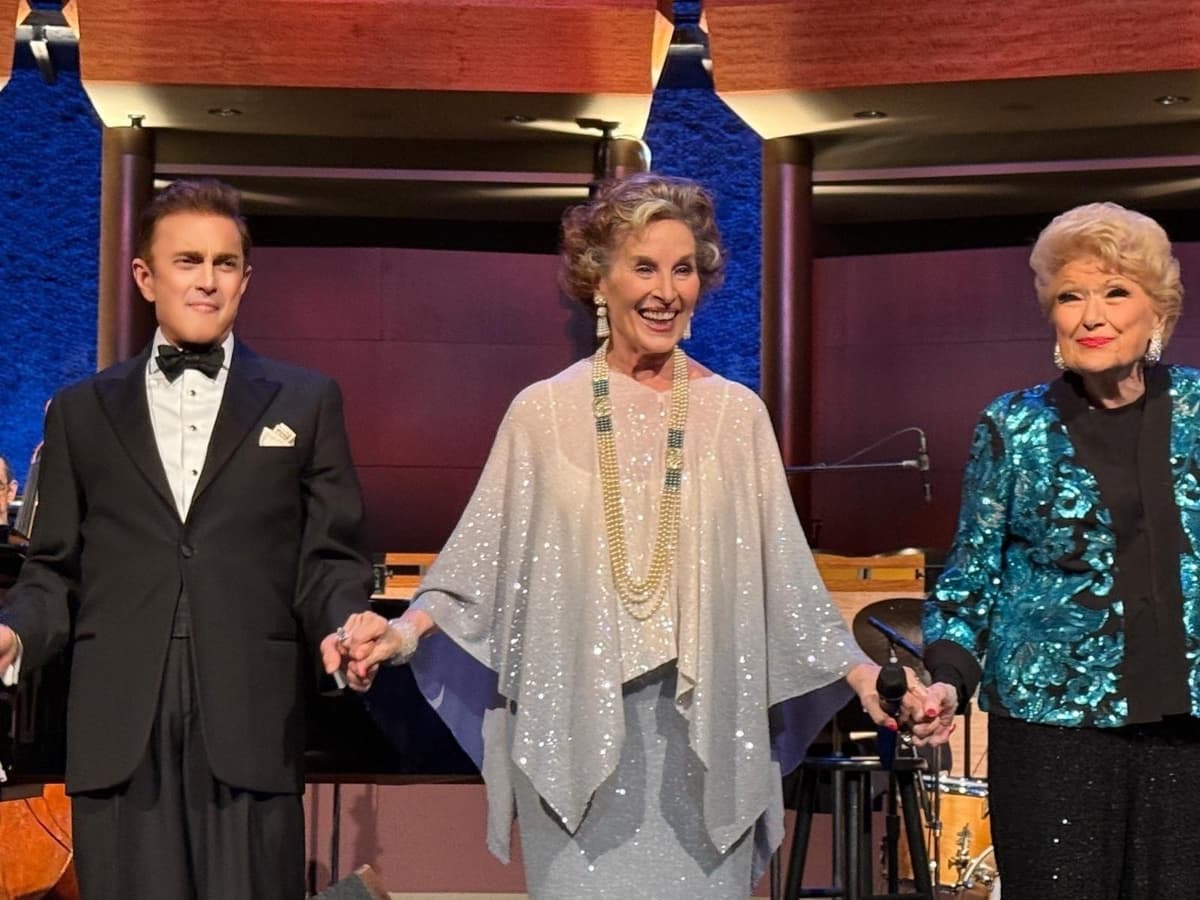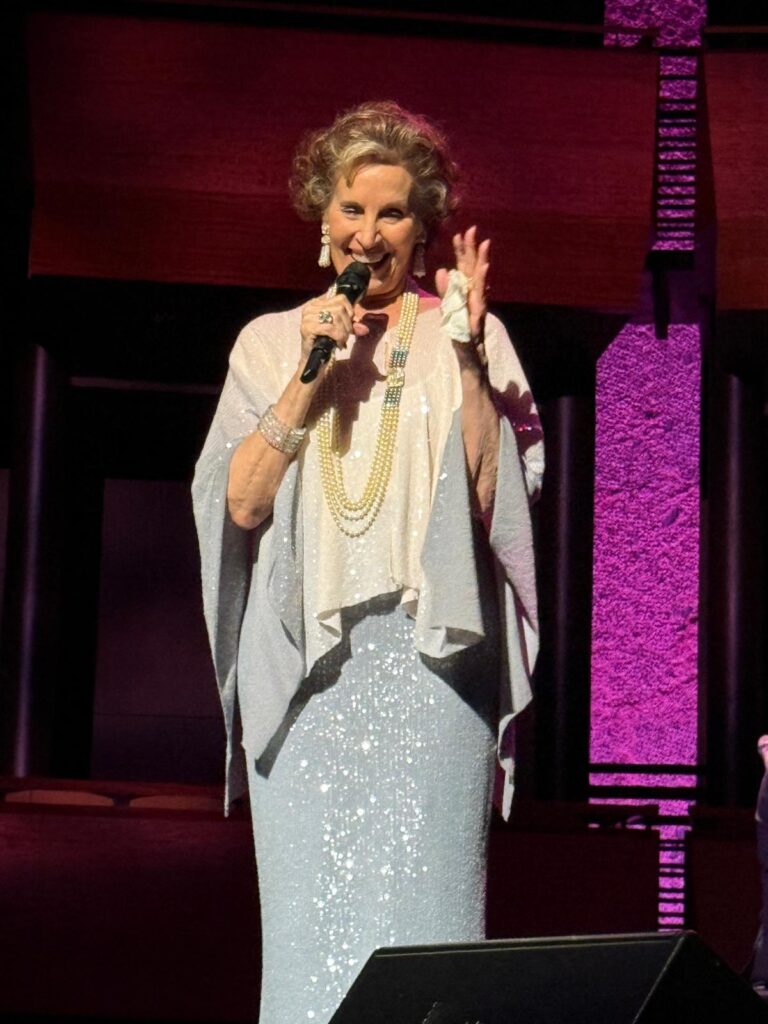A Celebration of Songwriter Charles Strouse Sparks Sentimental Journeys Aplenty
At 96, Strouse and his main lyricist — Lee Adams, who turned 100 in August — are virtually the last living major songwriters from the golden age of musical comedy.

The 35th Annual Mabel Mercer Foundation Cabaret Convention
Jazz at Lincoln Center, Rose Hall
Through October 24
Andrea Marcovicci
‘Don’t Tell Mama’
October 26, Two Performances
Maude Maggart
Birdland
October 28
The opening night of the 35th Annual Mabel Mercer Foundation Cabaret Convention, titled “Put On A Happy Face: A Celebration of Charles Strouse,” built to a completely unexpected climax.
Near the end of Act II, co-host Jeff Harnar performed a powerful reading of “Night Song,” a very moving soliloquy from “Golden Boy,” the 1964 show that many of us regard as Mr. Strouse’s masterpiece. Then, his co-host, Andrea Marcovicci, the veteran cabaret headliner, took the stage and was visibly shaken, announcing to the crowd that she had been crying through Mr. Harnar’s song; she was hardly alone in that.
Ms. Marcovicci was, in fact, giving us all a premonition that she wouldn’t be able to get through her own number, adding, “But, as they say in the acting game, I’ll use it.”
She then started to sing one of Mr. Strouse’s most poignant ballads, “Once Upon a Time,” from the 1962 “All American.” She began by using the bridge (“How the breeze rustled through his hair / How we always laughed as though tomorrow wasn’t there …”) as an introductory verse. Then, a few bars in, she quickly got lost and, despite the stalwart support of pianist Gerald Sternbach, couldn’t seem to find her way back to the lyrics.
After that, something extraordinary happened: She suddenly embodied “Once Upon a Time” more completely than anyone could have expected. Mr. Strouse’s music and Lee Adams’s lyric tell of an old professor reminiscing nostalgically over a lost love and his long-ago youth. Ray Bolger was 58 when he introduced the song; Ms. Marcovicci is 75.
She wasn’t singing the song: She became the song, and the whole house was breathing along with every word and every note.

We were suddenly all taking sentimental journeys along with her, back into the recesses of our own pasts, trying to see behind the doors that had been closed by time and shrouded in the mists of history. “Every little thought was so exciting to reveal / All our dreams we knew would soon be real / Where did they go?”
What could have been a train wreck somehow became a triumph — made even more visceral by the presence in the house of Mr. Strouse himself at age 96 — and when she reached the last line, she left us all with absolutely no doubt that “somehow once upon a time never comes again.”
It was, on the whole, one of the overall more memorable evenings of the hundred or so gala concerts produced by the Mabel Mercer Foundation since 1989, especially in that Mr. Strouse and his main lyricist — Mr. Adams, who turned 100 in August — are virtually the last living major songwriters from the golden age of musical comedy.
As expected, his two biggest hits, “Bye Bye Birdie” (1960) and “Annie” (1977), were the most well-represented. The evening began and ended with “Annie,” starting with a neo-vaudevillian, Bryce Edwards, reconceiving “You’re Never Fully Dressed Without a Smile” as a vigorously jazzy Depression-era cheer-up song. “Smile” included a saxophone solo by Danny Bacher, who gave us more singing, playing, and one-liners with “Burlesque” from “Minsky’s.”
The finale was the Moipei triplets from Kenya offering a stunningly reharmonized rearrangement of the “Annie” anthem “Tomorrow.” Along the way, another female vocal group, the quartet Those Girls, sang of a “Hard Knock Life” — minus both Jay Z and Dr. Evil — and Marta Sanders became Mrs. Hannigan bemoaning the abundance of “Little Girls.”
The most exciting number from “Birdie” was Marilyn Maye’s “Put On a Happy Face,” which concluded the first half. Yet the most moving “Birdie” ballad was Marissa Mulder’s “One Boy,” a tune that was kind of a Brill Building joke in the original and then became honestly and heartbreakingly sincere, thanks also to Jon Weber’s knowingly spare accompaniment. Tovah Feldshuh — appearing as the dreaded Leona Helmsley, the Cruella DeVille of Manhattan real estate — sang “Kids,” as well as “You’ve Got Possibilities” from the “Superman” musical of Messrs. Strouse and Adams.
Other Strouse works were heard from as well, particularly the 1970 “Applause,” with the title song by Lee Roy Reams from the original cast, and Ann Anello with the very dark “Welcome to the Theater,” which is kind of the anti-”There’s No Business Like Show Business.” Maude Maggart told of how her parents met while in the original production, and she moved us all with “The Best Night of My Life.”
There also were three memorable songs from “Rags,” the sultry and statuesque Leanne Borghesi with the torchy “Blame it on the Summer Night,” Madalynn Mathews with “Wanting,” and Ari Axelrod with “Children of the Wind,” accompanied by the show’s lyricist, the legendary Stephen Schwartz.
Act II began with Act I of “Birdie,” wherein a seven-voice ensemble — assembled for the occasion and named the DTM Dial-Tones — performed “The Telephone Hour” with iPhones in hand.
Historians may not consider “Bye Bye Birdie” a true rock-and-roll musical like “Hair,” but this might be the first time a composer combined the idiom even then known as doo-wop with baroque counterpoint and fugue. Could it be that Charles Strouse is the father of Progressive Rock?

